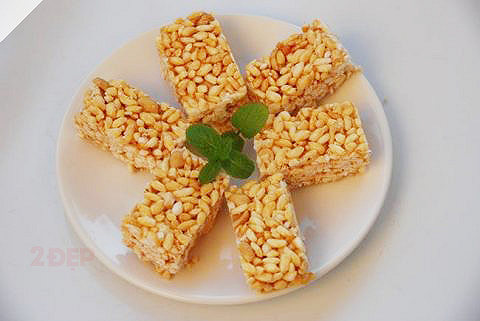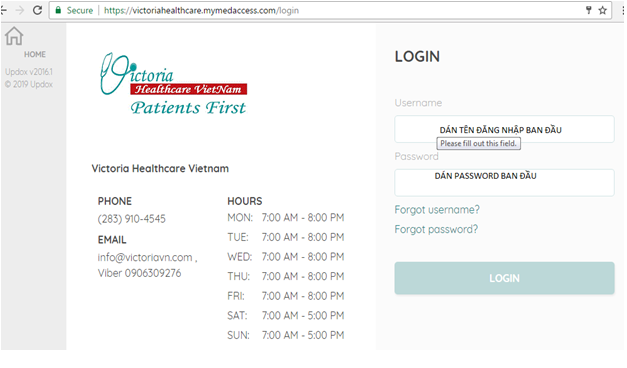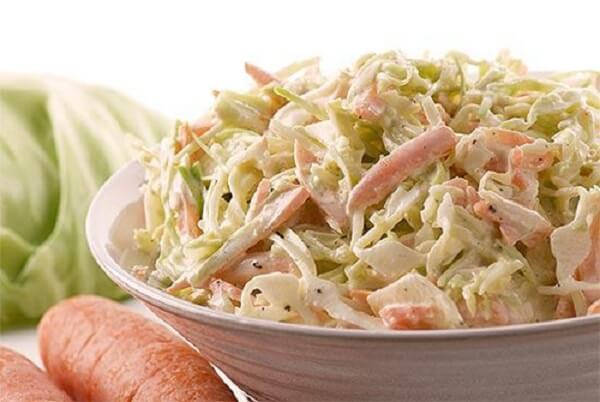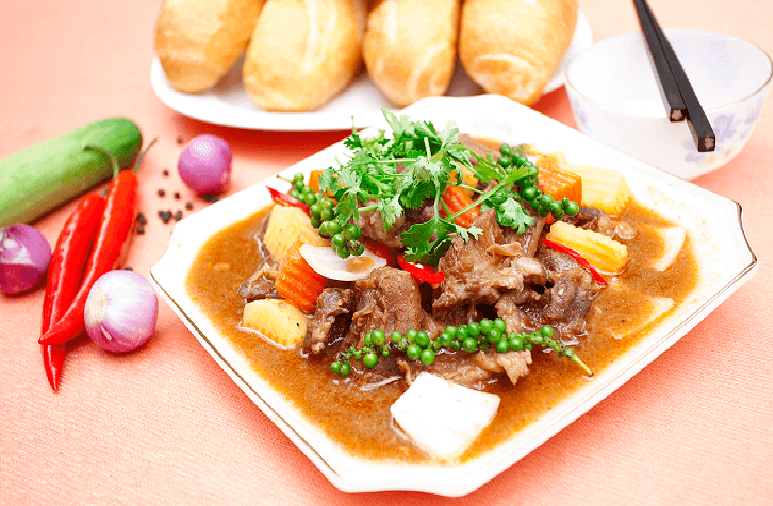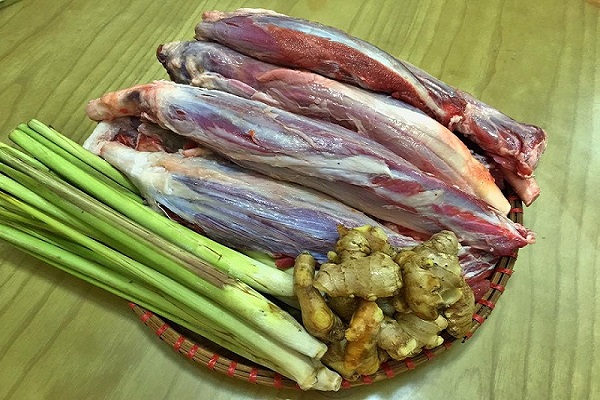Cách nấu mì quảng bằng tiếng Anh không chỉ giúp bạn học hỏi thêm được một món ăn ngon mà còn trình làng đến bè bạn quốc tế đặc sản nổi tiếng, nhà hàng Nước Ta. Hãy cùng Mâm Cơm Việt tò mò ngay những thông tin tương quan trải qua bài viết dưới đây.
Giá Trị Dinh Dưỡng Của Mì Quảng
Trước khi khám phá cách nấu mì quảng bằng tiếng Anh thì tất cả chúng ta nên mày mò thành phần dinh dưỡng có trong một tô mì quảng gồm có :
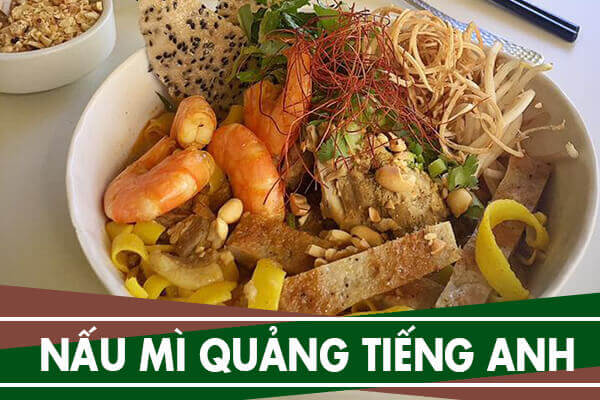
- 20.2 g chất béo.
- 67.4 g đường.
- 22.4 g đạm.
- 2.73 g chất xơ.
Mì Quảng Có Bao Nhiêu Calo ? Ăn Nhiều Có Mập Không ?
Ngoài cách nấu mì quảng bằng tiếng Anh thì nhiều người cũng khá tò mò không biết trong 1 tô mì quảng sẽ có bao nhiêu calo ? Theo các chuyên viên dinh dưỡng, cứ 1 tô mì quảng thì có khoảng chừng 541 calo.

So với các loại bún phở khác thì cách nấu mì quảng bằng tiếng Anh khá đơn thuần. Bên cạnh đó, mì quảng chứa hàm lượng calo cao hơn hẳn. Như vậy, nếu ăn mì quảng như một bữa phụ nhưng bữa chính vẫn cung ứng dinh dưỡng vừa đủ thì sẽ làm tăng lượng calo chóng mặt, dễ gây béo phì, tăng cân.
Do đó, nếu bạn đang thực thi chế giảm cân, lấy lại tầm vóc thì chỉ nên ăn mì quảng 1 – 2 lần / tuần và không ăn vào buổi tối để tránh tích tụ mỡ thừa.
Giới Thiệu Mì Quảng Bằng Tiếng Anh, Cách Nấu Mì Quảng Bằng Tiếng Anh ?
Để nắm đúng mực cách nấu mì quảng bằng tiếng Anh thì bạn cần hiểu mì quảng tiếng Anh gọi là gì ?

Mì quảng tiếng Anh là Quang style noodle soup – là một món ăn vô cùng đặc trưng của đất Quảng Nam, TP. Đà Nẵng mà ai ai cũng biết và yêu quý. Nấu mì quảng không hề khó tuy nhiên cần sự tinh xảo để hoàn toàn có thể tạo được mùi vị đúng chuẩn và thơm ngon.
Nếu như bạn không muốn phải ra ngoài hàng quán dùng mì quảng thì sao không thử cách nấu mì quảng bằng tiếng Anh tại nhà để chiêm ngưỡng và thưởng thức ?
Nào cùng Mâm Cơm Việt vào nhà bếp khám phá ngay cách nấu mì quảng bằng tiếng anh thơm ngon ngay dưới đây nhé!
Giới Thiệu Về Món Mì Quảng Nước Ta Và Cách Nấu Mì Quảng Bằng Tiếng Anh
Mi Quang is a perfect mix of texture and flavors. What makes it unique ? The wide yellow turmeric noodle and the broth make Mi Quang different from others.. Ingredients to cook the broth are pork and dried shrimp or chicken, duck, crab living in rice field. There are various recipes to make the broth but the broth must be yellow, slightly gelatinous, rich and have attractive smell.
The broths of other noodle soups such as Pho, Hue noodle soup and Clear noodle soup are cover the noodles completely. The Mi Quang’s broth is served enough to barely cover the noodles and it will be soaked up by the noodles in a few minutes if you don’t eat the bowl of Mi Quang fast. Unlike other Vietnamese noodle soups, Quang style noodle is almost like a noodle salad.
Trình Bày Cách Nấu Mì Quảng Bằng Tiếng Anh Tại Nhà
Ingredients
For pork stock
- 2-3 lbs pork neck bones or spare ribs
- 1 onion, cut in half
- 1 head of garlic, peeled
For mì quảng broth
- 1 lb medium sized shrimps, head-on or headless
- 1 lb pork belly
- 1 tbsp paprika, for color, and mild spicy flavor
- 1 tbsp annatto seeds, for color
- 1 tbsp onion powder or dried chopped onion
- 1 tbsp garlic powder
- 1 tbsp sugar
- 2 tbsp salt
- 50% tsp msg or 1 tbsp mushroom seasoning
- 1 tbsp fish sauce
- 2 shallots, thinly sliced
- 1 head of garlic, minced
- 50% cup of dried shrimps
- 5 quarts water
Accompaniments
- Banana Blossom
- Bean sprouts
- Perilla leaves
- Mint leaves
- Lettuce, coarsely chopped
- Cilantro, coarsely chopped
- Green scallions, thinly sliced
- Roasted peanuts, coarsely crushed
- Black sesame rice crackers
- Fish sauce
- Red chili peppers
Instructions
Step 1 : Mixing Dried Spices
In a small bowl, combine paprika, sugar, salt, msg or mushroom seasoning, onion powder, and garlic powder. Paprika gives the characteristic red colour and a mild spicy flavor. Omit it if you can’t tolerate spicy food.

Step 2 : Blanching Pork Neck Bones
Ask the butcher to chop the pork neck bones into 3 inch chunks. If you use spare ribs have them chop them into 2 inch pieces.
This step is to be done before boiling to remove any impurities from the bones. In a stock pot, cover the pork with cold water, bring to a boil, and simmer for 5 minutes before draining. Remove the pork. Rinse under running cold water. Discard the blanching water.
Step 3 : Cooking Pork Bone Stock
Cover the pork bones again with cold water. Add onion and garlic, Bring to a boil, then reduce to a simmer until the meat is cooked through, at least an hour. Frequently skimming any additional foam, and debris from the surface. Add more water if needed. You can make the stock a day ahead.

Half way through, place the dried shrimps in the tea ball strainer and drop it in the pot with the hanger hangs from the side of the pot. If you don’t have the tea ball strainer, adding shrimps straight into the stock pot is okay. The dried shrimps add a bit more depth and complexity to the flavor.
Step 4 : Sauteing Pork Belly and Shrimps
In the meantime, slice pork belly. Trim the legs and tails of shrimps. If using head-on shrimps, remove heads from shrimps and set aside for later use.

In a skillet, heat a tablespoon of olive oil and annatto seeds over medium heat, and cook, stirring constantly, until the oil becomes a rich, orange-red color, about 3 minutes. Discarding the seeds.
Add minced garlic, and cook until fragrant while stirring constantly, about 30 seconds. Add pork belly and stir-fry until the fat is translucent, about 2 minutes.

Add shrimp heads, if used, then press the shrimp heads with your spatula to bring out the flavor and color. Add shrimps and dried spices, stirring constantly, until shrimps turn pink. Remove skillet from heat.
Step 5 : Cooking Mì quảng Broth
By now, the pork neck bones should be cooked and the meat is soft. Transfer the sauteed pork belly and shrimps into the pot of pork bone stock. Bring it back to a slow steady boil. Remove the shrimps from the pot to prevent them from overcooked. Set aside.

Add a tablespoon of fish sauce to boost up the flavor of the broth. Simmer the broth for a little longer, about another 20 minutes.
Step 6 : Preparing Noodle
You can also get store-bought fresh white noodle. To make the noodle yellow, bring a pot of water and a teaspoon of turmeric powder to a boil. Then add noodle to blanch it for a minute. Drain and set aside.

Dried pre-made mì quảng noodle or dried wide rice noodle would also work. Follow the instruction on the package for how to cook the noodle.
Step 7 : Preparing Accompaniments
Banana Blossom : prepare a bowl of water with juice from a lemon. The acidity of lemon will prevent the banana blossom from discoloration. Cut banana blossom lengthwise, peel purple leaves and discard the small flowers in between the leaves.

Wash the leaves thoroughly then stack and roll leaves together and finely cut. Place in bowl of water. When you are ready to serve, remove shredded banana blossom for the water bowl and gently squeeze it to remove the access water.
Bean Sprouts, Perilla Leaves, Mint Leaves, and Lettuce : you can keep them separately or mix them together.
Black Sesame Rice Crackers : untoasted black sesame rice crackers can be found in Asian markets. It can be microwaved for about 2 minutes until crispy. They also sell pre-toasted ones as well.
Fish Sauce and Red Chili Peppers : Mix cut chili peppers and fish sauce in a dipping saucer.
Roasted Peanuts : coarsely crush the roasted peanuts.
Green Onion and Cilantro : in a bowl, mix thinly sliced green onion and coarsely chopped cilantro.
Step 8 : Presentation
In bowl, add noodle, pork neck bone, or spare ribs, slices of pork belly and shrimps. My daughters love fried fish patties so I always add it to mì quảng bowl. Serve this dish with less broth than other kinds of noodle soup.

Therefore, the broth for mì quảng need to be tasty. Ladle the hot broth over the noodle bowl ( about 50% of the bowl ). Garnish with green onions and cilantro, then top with roasted peanuts.
Serve mì quảng with shredded banana blossom, lettuce and herbs and black sesame rice crackers which you break into small pieces. Mix everything together and enjoy – perhaps with a cup of green tea!
Mặc dù cách nấu mì quảng bằng tiếng Anh phải trải qua nhiều quy trình nhưng khi đã nắm được tuyệt kỹ thì mọi việc sẽ rất nhanh gọn đấy nhé. Hãy lưu lại ngay công thức của chúng tôi để trổ tài chiêu đãi cho cả mái ấm gia đình nhé!
Như vậy cachlam.org đã chia sẻ với bạn bài viết Cách Nấu Mì Quảng Bằng Tiếng Anh – How To Make Mi Quang. Hy vọng bạn đã có được 1 cách làm hay và chúc bạn có được nhiều thành công trong cuộc sống hơn nữa!
Xem thêm các hướng dẫn và mẹo vặt hay: https://cachlam.org/huong-dan

